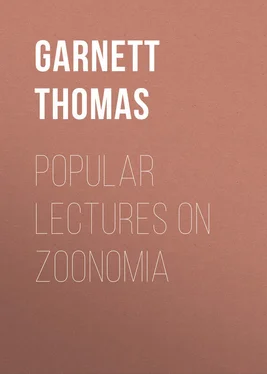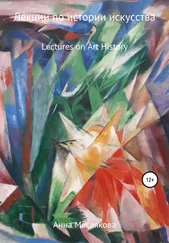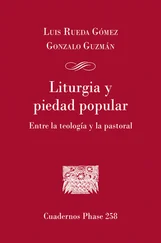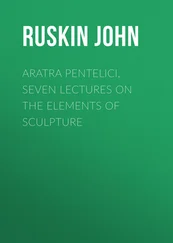Thomas Garnett - Popular Lectures on Zoonomia
Здесь есть возможность читать онлайн «Thomas Garnett - Popular Lectures on Zoonomia» — ознакомительный отрывок электронной книги совершенно бесплатно, а после прочтения отрывка купить полную версию. В некоторых случаях можно слушать аудио, скачать через торрент в формате fb2 и присутствует краткое содержание. Жанр: Биология, foreign_antique, foreign_prose, на английском языке. Описание произведения, (предисловие) а так же отзывы посетителей доступны на портале библиотеки ЛибКат.
- Название:Popular Lectures on Zoonomia
- Автор:
- Жанр:
- Год:неизвестен
- ISBN:нет данных
- Рейтинг книги:4 / 5. Голосов: 1
-
Избранное:Добавить в избранное
- Отзывы:
-
Ваша оценка:
- 80
- 1
- 2
- 3
- 4
- 5
Popular Lectures on Zoonomia: краткое содержание, описание и аннотация
Предлагаем к чтению аннотацию, описание, краткое содержание или предисловие (зависит от того, что написал сам автор книги «Popular Lectures on Zoonomia»). Если вы не нашли необходимую информацию о книге — напишите в комментариях, мы постараемся отыскать её.
Popular Lectures on Zoonomia — читать онлайн ознакомительный отрывок
Ниже представлен текст книги, разбитый по страницам. Система сохранения места последней прочитанной страницы, позволяет с удобством читать онлайн бесплатно книгу «Popular Lectures on Zoonomia», без необходимости каждый раз заново искать на чём Вы остановились. Поставьте закладку, и сможете в любой момент перейти на страницу, на которой закончили чтение.
Интервал:
Закладка:
No station in life escaped his benevolent attentions. In order to benefit John Metcalf, who is perhaps more generally known by the name of Blind Jack of Knaresborough, he assisted him to publish an account of the very singular and remarkable occurrences of his life, during a long series of years, under the heavy affliction of total blindness; by the sale of which, this venerable old man derived a considerable contribution towards his subsistence.
Whilst at Harrowgate, Dr. Garnett obtained the patronage and protection of the Earl of Rosslyn, then Lord Loughborough, who in the year 1794 built a house for him, which for the future Dr. Garnett meant should be his only residence; it was not long however before he discovered that his situation at Harrowgate was but ill calculated to forward his liberal and extended views. At this place he had small opportunities of attaching himself to his favourite sciences; in the winter months he was without literary society, and it was not for his ardent spirit to remain inactive. About this time also, he formed the idea of going to America, where he thought he might live both honourably and profitably as a teacher of chemistry and natural philosophy. All these circumstances were floating in his mind, when in the year 1794, about the end of July, at the instance of a medical friend, who resided in London, he received as boarders into his house, which was kept by his sister, Miss Catharine Grace Cleveland, daughter of the late Mr. Cleveland, of Salisbury Square, Fleet Street, who was recommended to the use of the Harrowgate waters, together with her friend Miss Worboys. To all who were acquainted with the prepossessing exterior of Dr. Garnett, the liveliness of his conversation, the urbanity of his manners, and his general desire of communicating knowledge to whomever he saw desirous of gaining information, it will be no surprise, that a mutual attachment grew up between him and his inmate, Miss Cleveland, a young lady possessing, in all respects, a mind similar to his own, and who must have felt a natural gratification in the zeal with which the company of the person, on whom she had placed her affections, was sought by all ranks resorting to this fashionable watering place, where every one thought himself most fortunate who sat nearest to him at the table, and where he enlivened the circle around him with his conversation, which was not only instructive, but playfully gay, and entertaining, ever striving to amuse, and always successful in his attempts. The Doctor now began to project plans of happiness, which he had only before held in idea. Previous to his visitors leaving Harrowgate, which was towards the latter end of December, he communicated to Miss Cleveland his intention of going to America. At first she hesitated about accompanying him; but finding his resolution fixed, she at length consented. From this time, till the beginning of March 1795, he continued deliberating upon and maturing his plan. He now departed from Harrowgate, and followed the object of his affection to her mother's residence at Hare Hatch, Berks. He was married to her on the 16th of March, and a fortnight afterwards returned to Harrowgate, to dispose of the lease of his house, and his furniture. Having again joined his wife, he then went to London, where he purchased apparatus for his lectures, and after visiting his parents, he proceeded to Liverpool, in order to obtain a passage to America.
Whilst he was thus waiting for the opportunity of a vessel to transport him across the Atlantic, he was solicited by the medical gentlemen at Liverpool, to unpack his apparatus, and give a public course of lectures on chemistry and experimental philosophy. At all times desirous of diffusing the knowledge he had acquired, and eager to fulfil the wishes of his friends, he complied with their request, and entered upon a plan, which in the end completely overturned the scheme he had for several months been contemplating with such ardent hopes of happiness and prosperity. No sooner had he been prevailed upon, than he set about getting every thing ready for his lectures, and after a single week's preparation; he commenced his course. The deep interest he took in his subject, the anxiety he showed to make himself understood, and the enthusiastic hope he constantly expressed of the advancement of science, had a remarkable effect upon his audience; and his lectures were received with the most flattering marks of attention, and excited the most general applause and satisfaction. In a short time, he received a pressing invitation from the most eminent characters at Manchester, to repeat his course in that town. This invitation he accepted, and, encouraged by the success he had just experienced, he postponed the idea of leaving his country. He arrived at Manchester about the middle of January 1796, and began his lectures on the 22nd of that month. Before his arrival, not less than sixty subscribers had put down their names, the more strongly to induce him to comply with their wishes, and many more had promised to do it, as soon as his proposals were published. Notwithstanding he was thus led to expect a large audience, and had procured apartments, which he imagined would be sufficiently spacious for their reception, he was obliged, for want of room, to change them not less than three times during one course. With such success did the career of his philosophical teaching begin, and with such extreme attention and respect was he every where received, that he used afterwards to mention this period, as not only the most profitable, but the most happy of his life. On the 24th of February, his wife was brought to bed of a daughter, the eldest of the two orphans who have now to lament the death of so valuable a parent, to deplore the loss of that independence which his exertions were certain to have raised them, and to rely on a generous public for protection, in testimony of the virtues and merit of their father.
After this time Dr. Garnett repeated nearly the same course of lectures at Warrington and at Lancaster; to both which places he was followed by the same success.
Читать дальшеИнтервал:
Закладка:
Похожие книги на «Popular Lectures on Zoonomia»
Представляем Вашему вниманию похожие книги на «Popular Lectures on Zoonomia» списком для выбора. Мы отобрали схожую по названию и смыслу литературу в надежде предоставить читателям больше вариантов отыскать новые, интересные, ещё непрочитанные произведения.
Обсуждение, отзывы о книге «Popular Lectures on Zoonomia» и просто собственные мнения читателей. Оставьте ваши комментарии, напишите, что Вы думаете о произведении, его смысле или главных героях. Укажите что конкретно понравилось, а что нет, и почему Вы так считаете.












